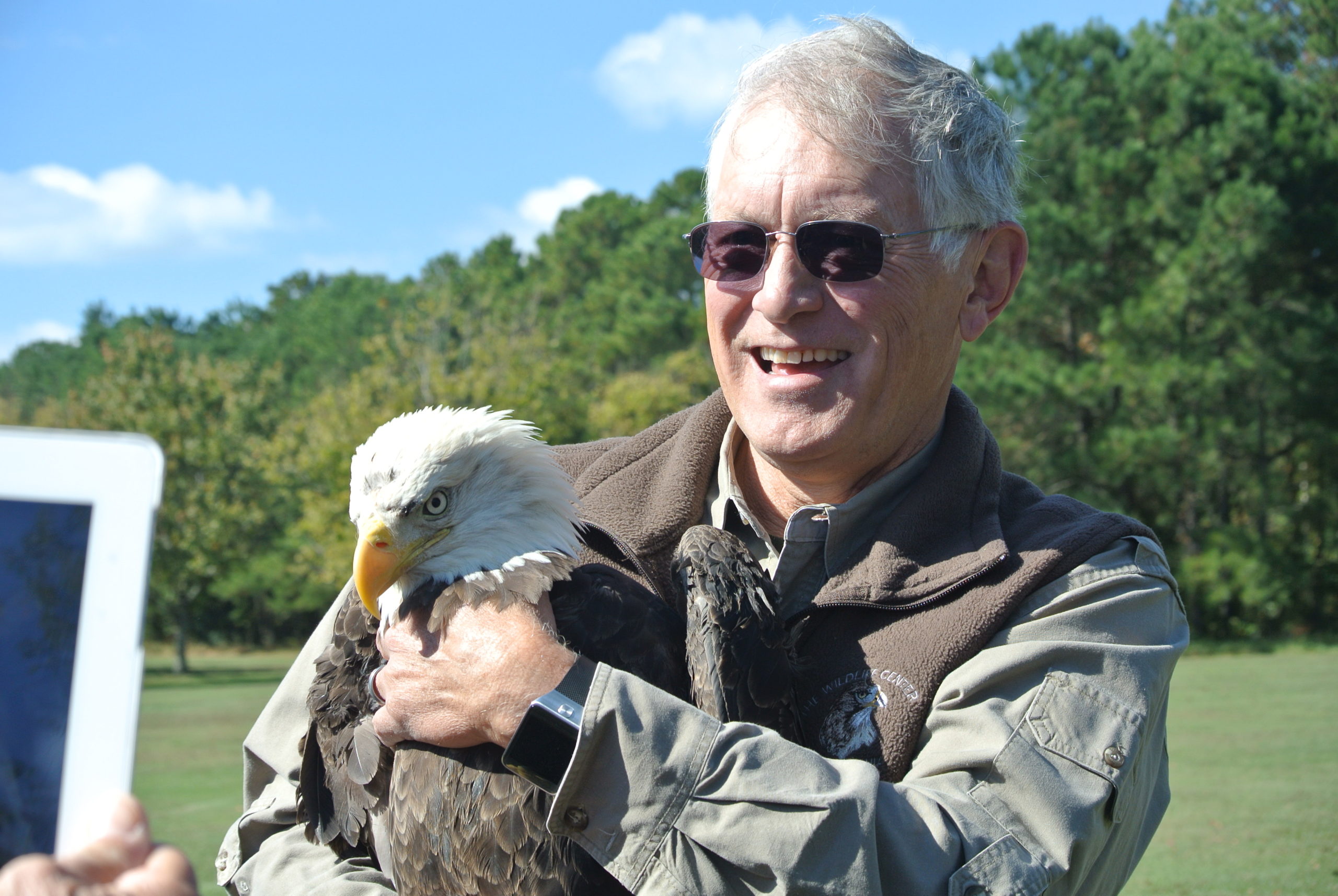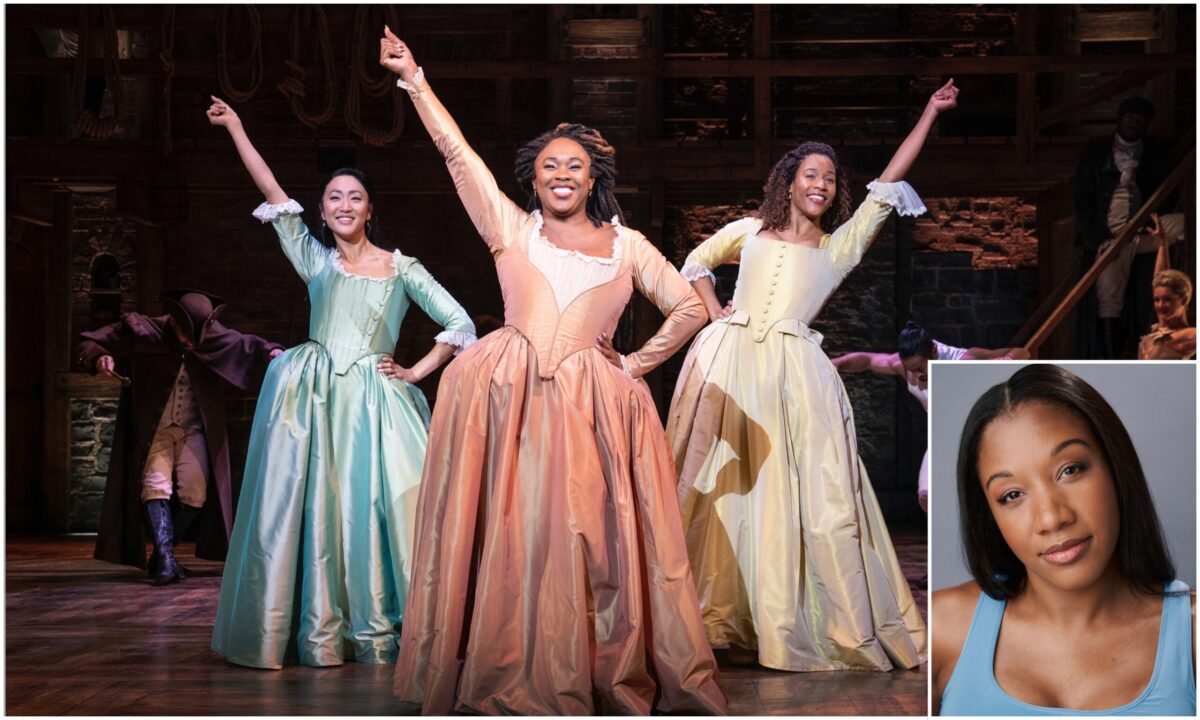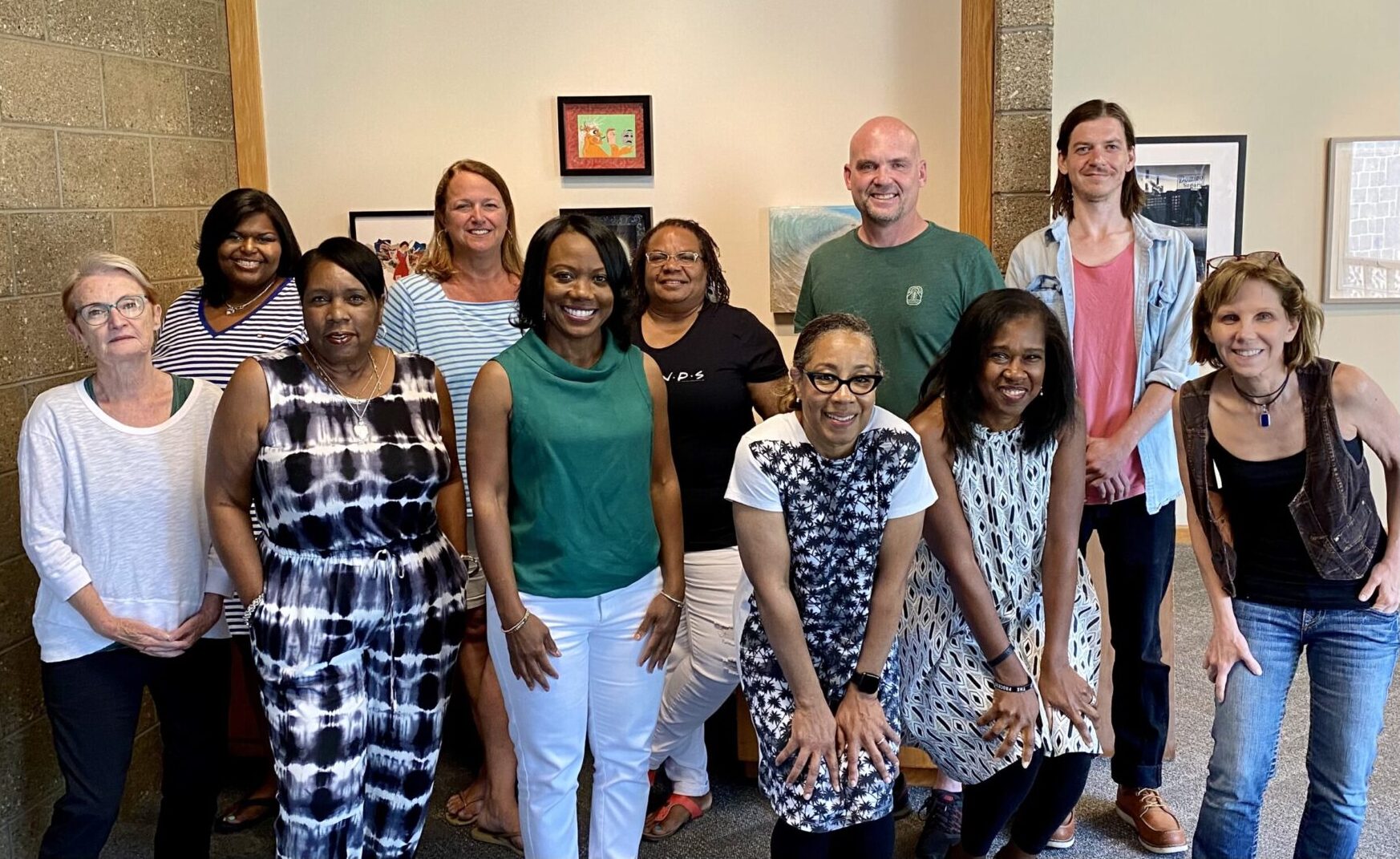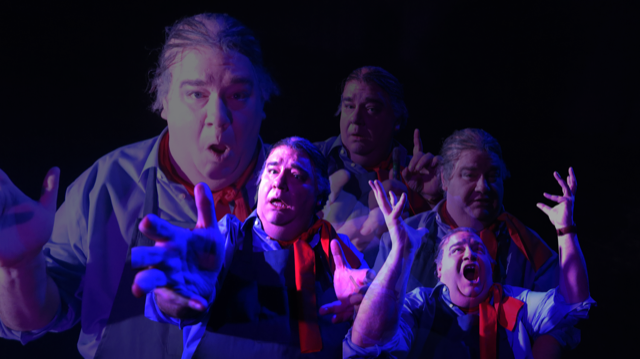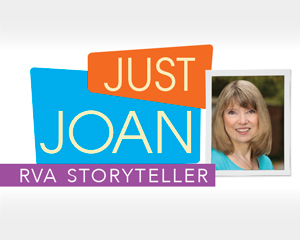 Ed Clark’s weekends with his uncle in southern Pennsylvania sparked his lifelong career in conservation.
Ed Clark’s weekends with his uncle in southern Pennsylvania sparked his lifelong career in conservation.
Clark began spending every weekend with his uncle and aunt when he was very young. He and his uncle would go out to the one-room cabin that was tucked away in fifty acres of forest land. Clark spent his time in the woods, hiking the mountains, watching wildlife and hunting and fishing.
“When I want to flee the world, this is still where I go,” says Clark, the president and co-founder of the Wildlife Center of Virginia and host of Untamed on PBS VPM. “I am blessed to have had a mentor to tell me about nature. There are so many kids that would benefit from what I had. What I have tried to do in my career is share some of those insights.”
His involvement in conservation over the years has been wide ranging, from public land management to endangered species protection, working with the U. S. Congress and the Virginia General Assembly.
“I have probably written more laws on conservation than 98 percent of attorneys,” he says.
Personal History of Conservation
Clark was one of four co-founders who started the Wildlife Center of Virginia in 1982.
“What propelled the center forward so quickly was the fact that we started off with professional expertise. We weren’t just people who loved animals,” he says. “We started it in a horse barn on the farm where I was living at the time.”
Now, forty years later the center is a state-of-the-art veterinary hospital with over 30 employees. “We recently began discussing a major facilities expansion,” Clark says.
The teaching and research hospital trains wildlife medicine practitioners including veterinarians, veterinary externs and veterinary technical students in wildlife and conservation medicine.
“They can study with a professional staff and learn to apply general skills to the specialized world of clinical wildlife medicine,” Clark says.
Back in 1983, the center treated a total of 125 animals. Today, it can admit more than 125 animals in a day.
“We have had 90,000 patients since we started,” Clark says. “People bring us animals from all over Virginia.”
The center, located in Waynesboro, only deals with animals from the wild (no pets or exotic animals). “We treat everything from Black bears to bunnies, from birds to reptiles. We can’t care for adult deer, but we can care for fawns,” Clark says.
The center does not take care of skunks and raccoons because they have a high incidence of rabies.
“We pass them to other facilities that specialize in them,” Clark says.
Clark’s Commitment to Untamed
Hosting Untamed is a natural fit for Clark. It is the fourth television series he has hosted, and the third for PBS VPM. This year marks the fourth season for the show, which started in 2019 as a one-half hour special during pledge week.
“The show got tremendous response from the public. The first year we had no budget or dedicated staff but we put together twelve programs,” he says, adding the show had a better response from views during its second season.
In May 2021, the show’s One Health episode (Season 2) won two bronze Telly Awards. The Telly Awards honor excellence in video and television and showcase work from some of the most respected television stations, advertising agencies, production companies and publishers from around the world.
The following month, the same episode was nominated for a regional Emmy with The National Capital Chesapeake Bay Chapter of The National Academy of Television Arts and Sciences.
During the first two seasons, the show was picked up by 80 or 90 PBS affiliates across North America.
“The show is broader than the wildlife center,” Clark says. “We refer to the work that we do but we are talking about broader concepts.”
The show speaks to One Health, the professional school of thought that the environment, wildlife health and human health are all interrelated.
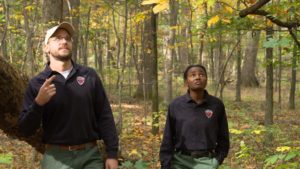 “COVID-19 allegedly started with animals. That is the kind of interrelationship we talk about,” he says.
“COVID-19 allegedly started with animals. That is the kind of interrelationship we talk about,” he says.
This year’s episodes of the show look at the wildlife hospital and what happens to animals that don’t survive. “Just because an animal doesn’t get released from the hospital doesn’t mean the interaction wasn’t successful,” Clark says. “We learn from our patients. If you are able deal with problems in the environment, then that animal’s sacrifice has been noble and valuable.”The series also looks at conservation engagement and sustainable land use as well as cultural utilizations such as Bald Eagles and what they mean to Native Americans.
Every episode of the show ends with a short trailer with the message — you have learned about this issue and here are the things you can do in your own home or yard. “The show is not only to inform audiences but also to empower them. People can have so much positive impact on the environment and on wildlife,” he says. “The shows are simple, practical and related to real-world issues that affect wildlife.”
He hopes the show is able to help people understand that they can make a difference in the environment and with wildlife with simple, daily decisions.
“Every one of us has the capacity to make a positive difference on the world around us. Therefore, we have that responsibility to make a difference,” he says. “We want people to understand and care about an issue and act on that concern. That will close the loop.”


